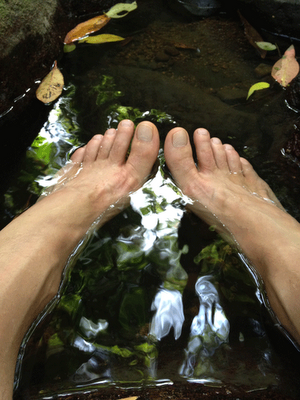To prevent repeating past mistakes, it’s essential to learn from previous experiences. This can involve journaling, blogging, or discussing with friends and family to gain clarity and perspective. Often, we become so engrossed in our thoughts that we miss the bigger picture, making external input invaluable.? Well, for one thing, we have to take the time to learn from those earlier experiences. This may take the form of journalling or blogging, as I am doing now, or it may require sharing these experiences with your close friends and family to get their feedback and/or clarification on the subtleties of those experiences. Because sometimes, we get so wrapped up in our heads, that we “cannot see the forest for the trees.”
Patience is vital in decision-making. Avoid hasty conclusions drawn from incomplete information. By thoroughly assessing situations, you can make more informed and effective choices. This approach helps maintain control and ensures decisions align with your long-term goals.. Taking time to assess situations thoroughly can lead to more informed and effective decisions.
The urge to control our lives often drives us to make quick decisions. However, life is unpredictable, and even experienced individuals face unexpected challenges. It’s beneficial to pause, reflect, and allow situations to unfold naturally before making significant decisions. This approach reduces the risk of missed opportunities and wasted resources.. Unfortunately, this is hardly ever the case. Even for a person with lots of experience, life’s unexpected lessons can be a bitch. It is always better to wait and see. In other words, to just sit on something for a while, chew it over, and allow things to play out or mature before taking any major action or drawing and concrete conclusions. Sure, there will be times, when this attitude may cause us to “miss the boat” of opportunity, but I can assure you that those sorts of divine and serendipitous moments are few and far between. History confirms that to act in haste can sometimes lead to the greatest waste of time and resources.
So how do we recognise those divine moments — the ones that really are “Opportunity” knocking at our door, from those other times when “Opportunity” is really just a Will–o’-the-wisp nicely dressed to distract us from more important things? Certainly, with time comes the wisdom to know the difference; however, a good rule of thumb for discerning reality from illusion is to pause or reflect whenever there is any tinge of uncertainty. “Opportunity” may not give you the time you need to consult friends and family and cultivate the full faith and confidence you need to take confident action. So in these cases, just pause. Take a moment and be silent. Put your feet in the river or ocean, let your hair down, breathe deeply, and pause. Carefully play the scenario out in your mind’s eye and then see how you feel about it. Live the opportunity out as much as you can in your mind first.
Secondly, ask the question, “What if?” and see how you feel about the answer. Next, ask for divine guidance and sleep on it. At all costs, do not allow lust to dictate your decision.
Now, if you’ve already done that and you feel confident that the “Opportunity” is the real deal, then act with full conviction and enjoy every moment of the consequences. And if things don’t pan out the way you imagined, then at least you can say that you tried.
FAQ
Q: How can I improve my decision-making skills?
A: Improve decision-making by reflecting on past experiences, practicing patience, and seeking advice from trusted individuals. Consider potential outcomes and trust your intuition.
Q: Why is patience important in making decisions?
A: Patience allows you to gather more information and consider different perspectives, leading to more informed and effective decisions.
Q: How can I recognize a true opportunity?
A: Evaluate opportunities by pausing, reflecting, and seeking guidance. Trust your intuition and differentiate between genuine opportunities and distractions.
Q: What should I do if a decision doesn’t go as planned?
A: Learn from the experience. Reflect on what went wrong and use it as a lesson for future decisions. Every outcome provides valuable insights.
Q: How can I improve my decision-making skills?
A: Enhance your decision-making by reflecting on past experiences, practicing patience, and seeking advice from trusted individuals. Consider potential outcomes and trust your intuition.
Q: Why is patience important in making decisions?
A: Patience allows you to gather more information and consider different perspectives, leading to more informed and effective decisions.
Q: How can I recognize a true opportunity?
A: Evaluate opportunities by pausing, reflecting, and seeking guidance. Trust your intuition and differentiate between genuine opportunities and distractions.
Q: What should I do if a decision doesn’t go as planned?
A: Learn from the experience. Reflect on what went wrong and use it as a lesson for future decisions. Every outcome provides valuable insights.
Q: How can I avoid making impulsive decisions?
A: Avoid impulsive decisions by taking time to reflect, seeking advice, and considering the long-term impact of your choices.
Q: What role does intuition play in decision-making?
A: Intuition helps guide decisions when information is limited. Trusting your instincts can lead to more authentic and aligned choices.
Q: How can I balance control and flexibility in decision-making?
A: Balance control and flexibility by setting clear goals while remaining open to change. This approach allows for adaptability without losing direction.
Q: Why is it important to seek external input in decision-making?
A: External input provides diverse perspectives, helping to identify blind spots and enhance decision quality.





Anonymous
yes well sometimes our worlds need turning upside down…
Tinks
Yes well sometimes our worlds need turning upside down…..